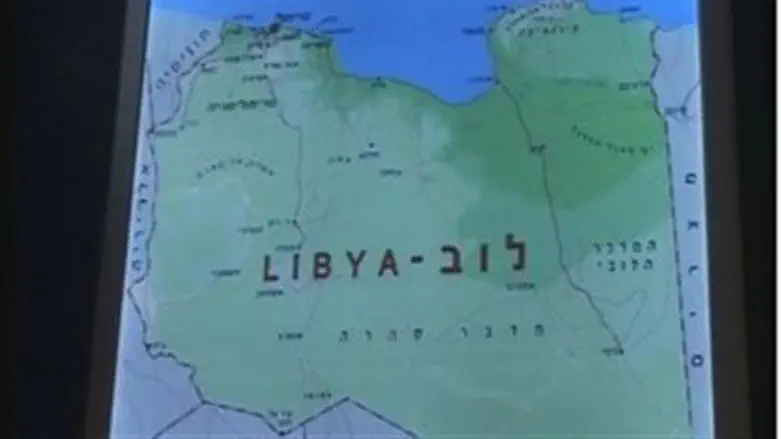
As the violent protests in Libya continue, Israel National News TV visited the Libyan Jewry Heritage Center in Israel to hear the feelings of those Jews who came from Libya.
“My feeling is not good," said Meir Kachlon, Chairman of the World Organization of Libyan Jews. “The people that I knew are ruled by a cruel leader who supposedly does everything to help them but really hurts them, and the proof of that is in the fact that he hired mercenaries to kill them. That’s what hurts me."
Kachlon said that he believes the opposition on Libya isn’t strong enough, and that in order to rebuild the country, those opposition leaders who fled from the country will have to come back and take it upon themselves to renew life in Libya.
"The problem is Europe and the United States, who are very slow," said Kachlon. "There’s no one to help the Libyans. In Egypt they told Mubarak to step aside. They haven’t said that to Qaddafi yet. It’s the oil and the holdings there that are really talking, and I feel that Qaddafi is in control of his money and his oil. He will stand by his word: if they don’t listen to him there will be genocide in Libya.”
He noted that before Qaddafi took over, Libya had ancient synagogues, all of which are gone and some of which have become mosques. But the worst part, he said, is the ancient Jewish cemetery in Tripoli.
“There was a whole cemetery in Tripoli, 130 acres in size, on top of which buildings were constructed, complete with roads and everything," said Kachlon. "Qaddafi crushed all the graves and threw them into the sea. The world was silent. When they saw him doing it, nobody asked: ‘What is he doing to that cemetery? Why did he destroy the Jewish cemetery?’”
Despite the grave looking situation in his country of origin, Kachlon expressed hope that things will get better.
“I hope that there is room for optimism," he said. "I want Qaddafi's punishment to come from those beloved dead ones whom he took and threw into the sea.”
For a review of the Jewish presence in each Middle Eastern area today, click here: part one, part two.
For a review of the history of Libyan Jewry, click here.